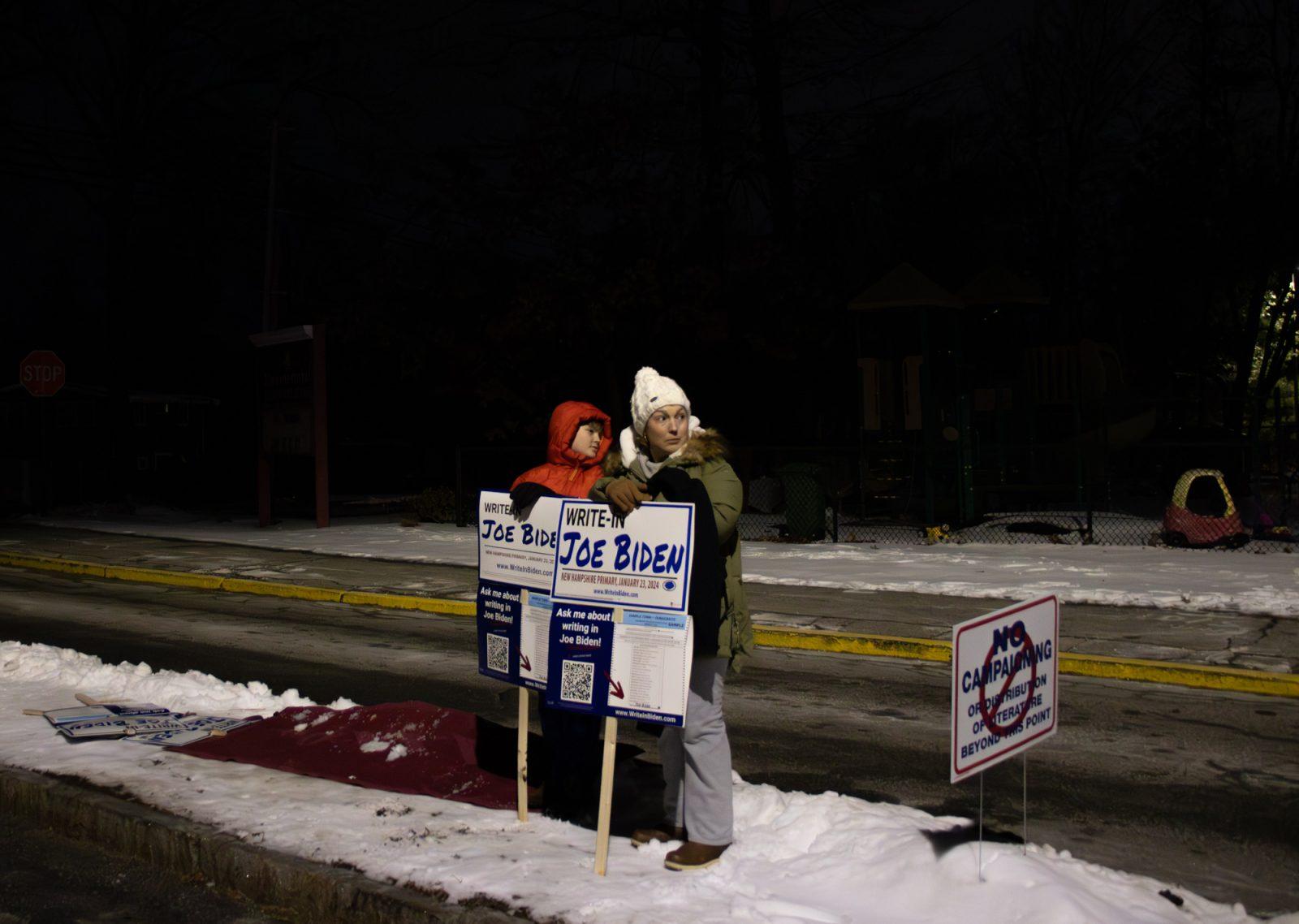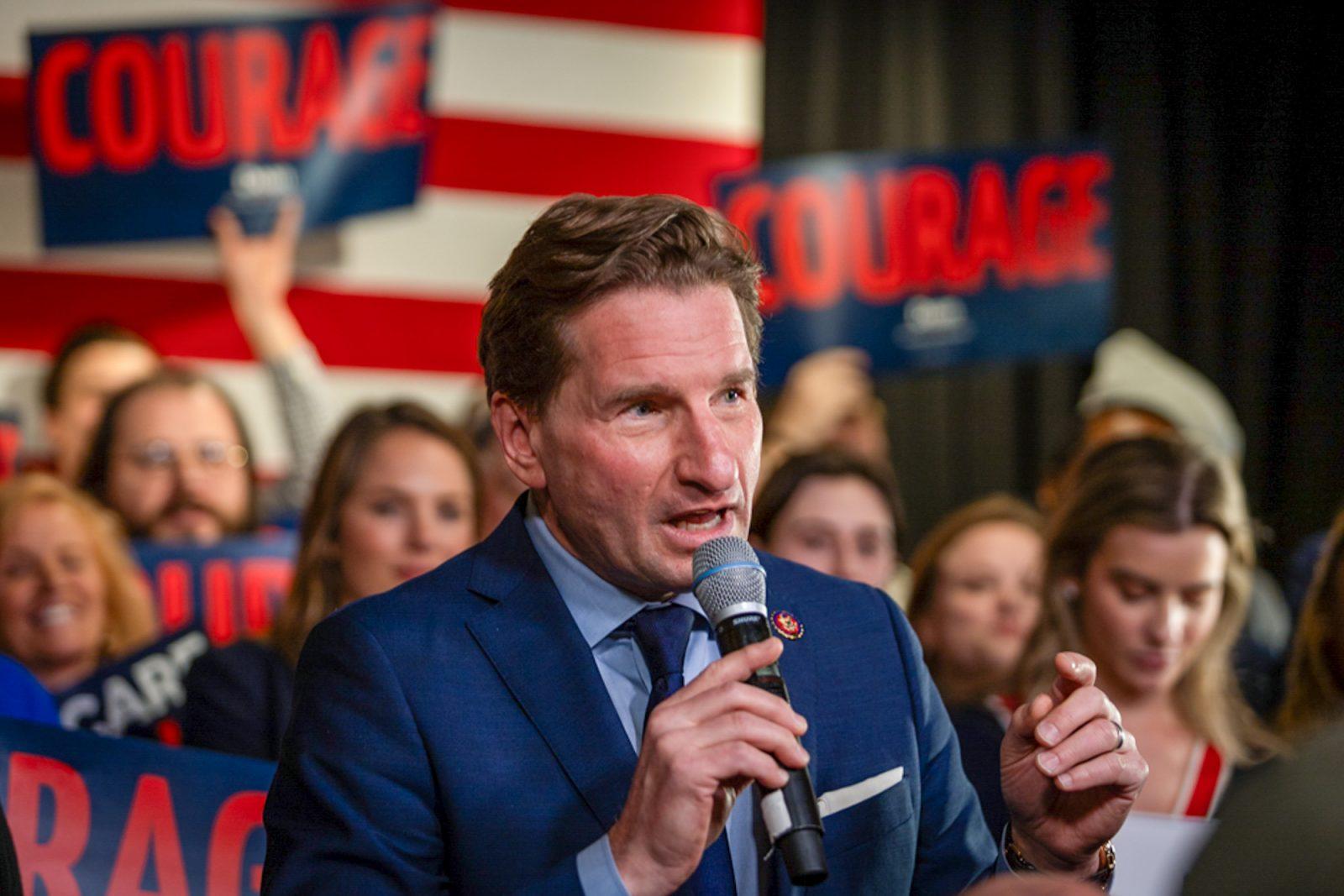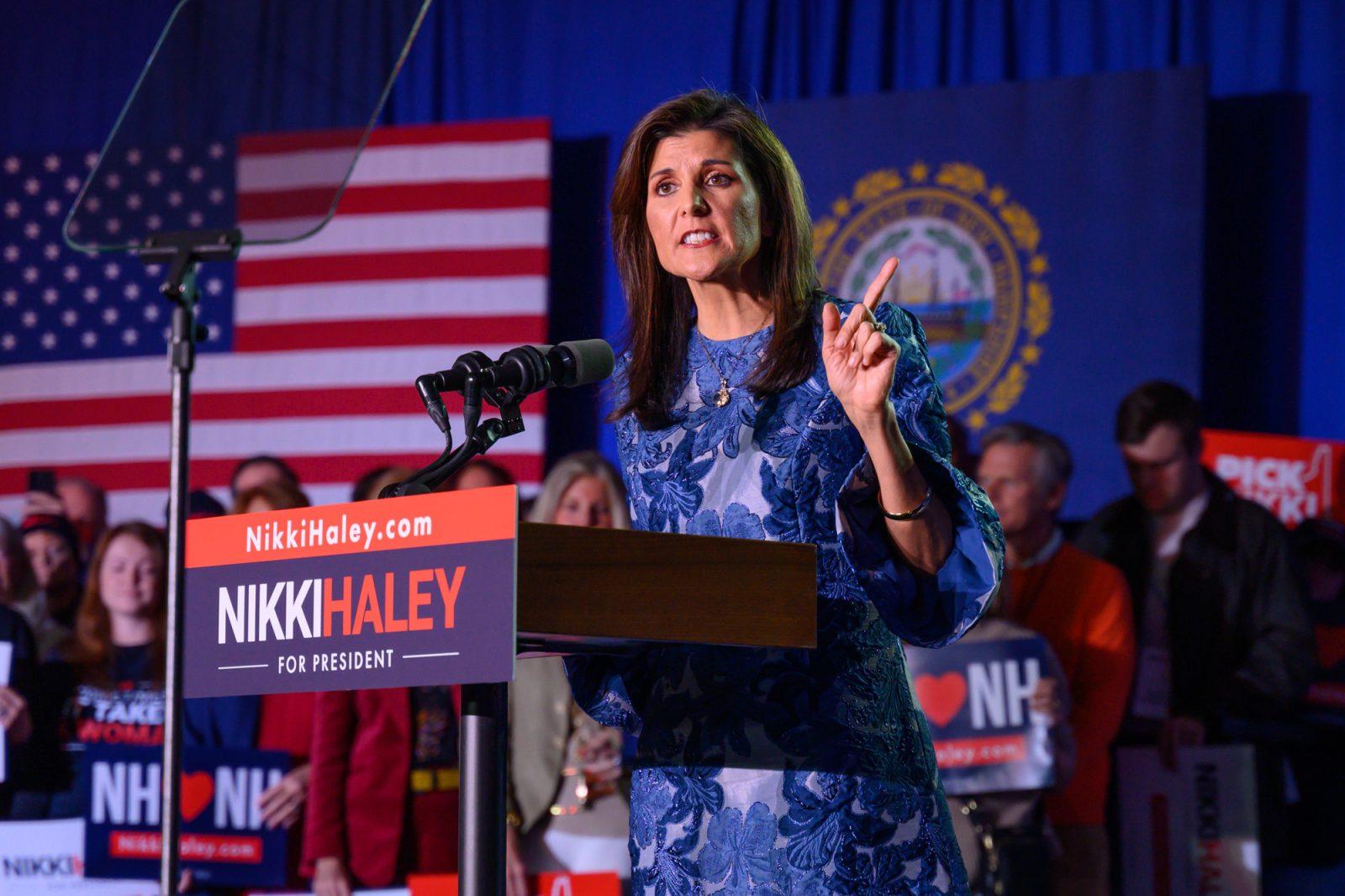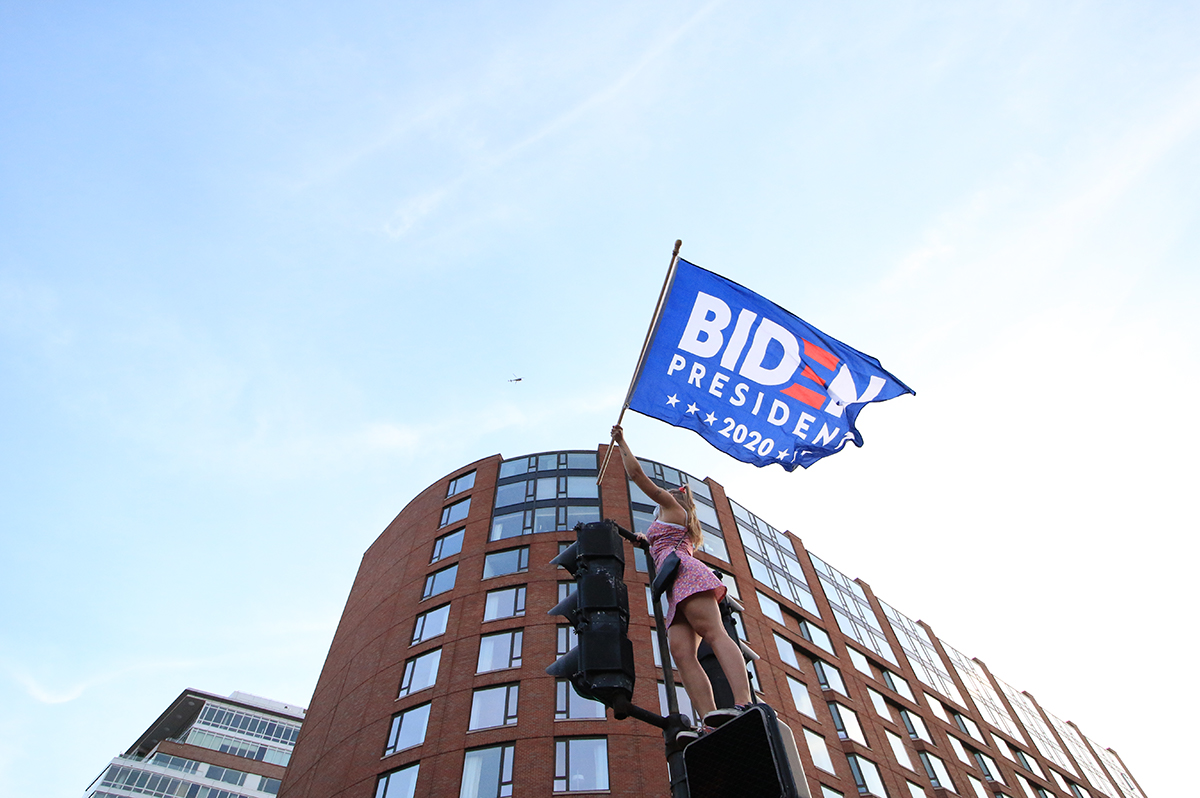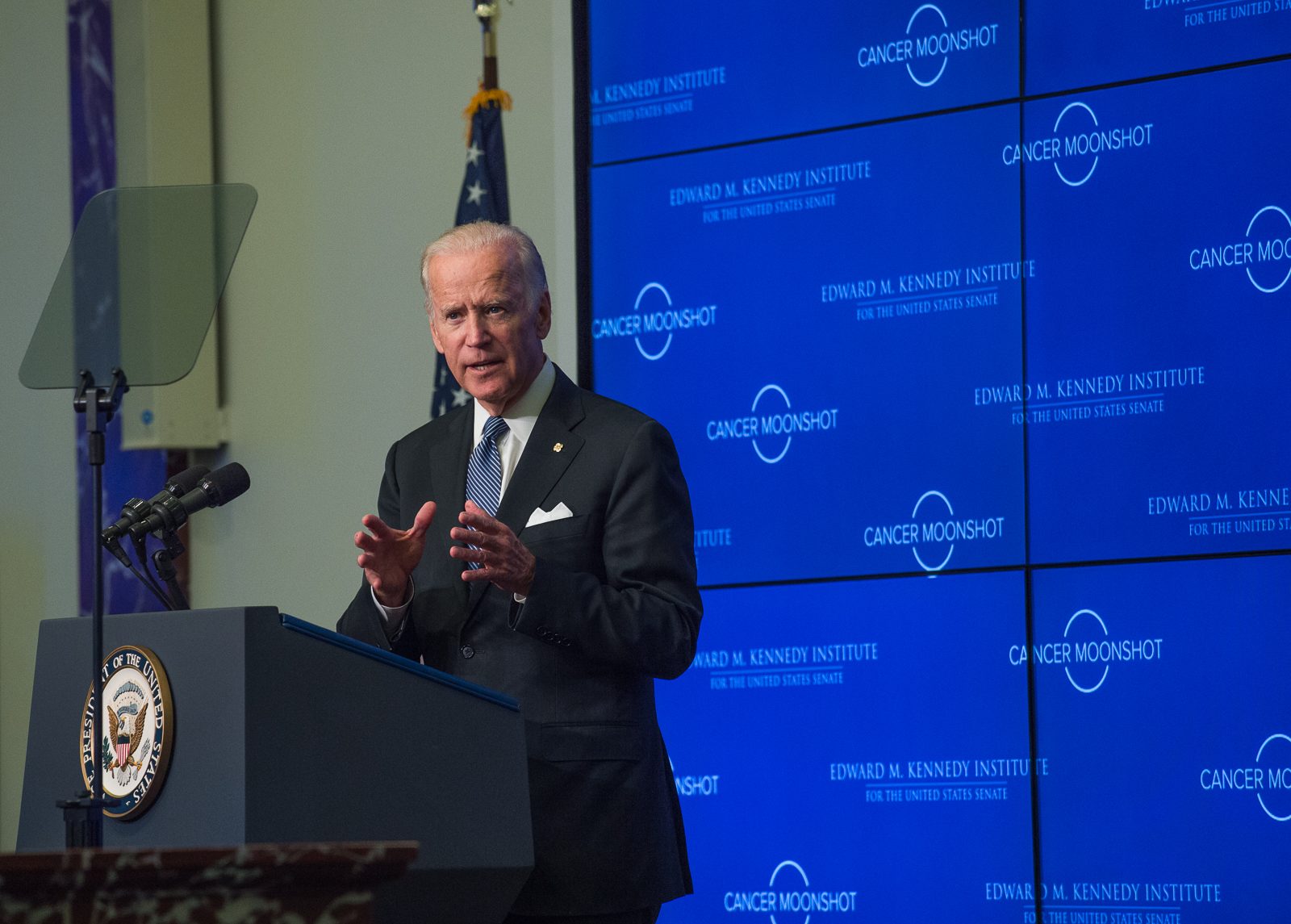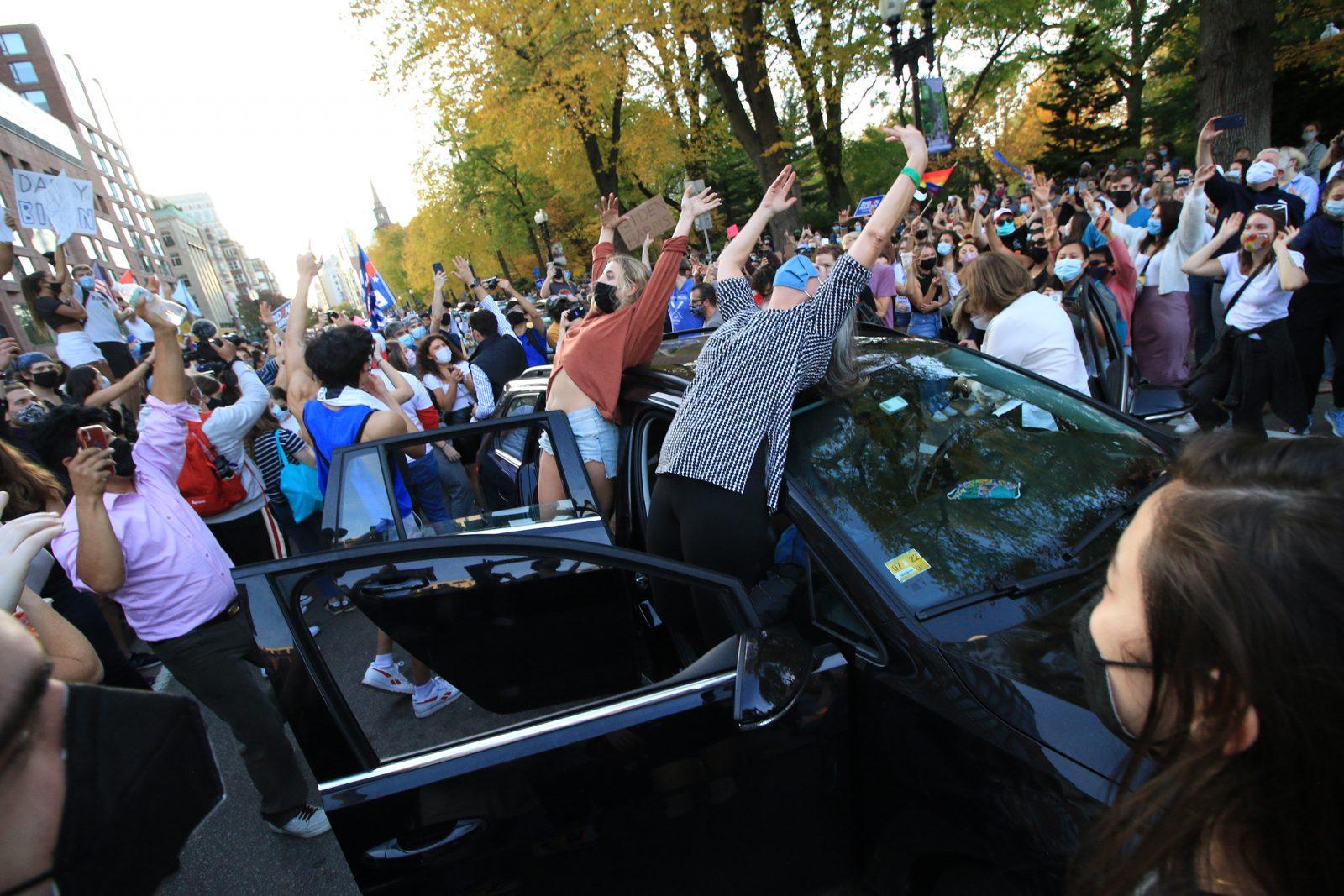Tuesday’s New Hampshire primary, the first in the nation, saw a close win for Sen. Bernie Sanders, as well as the end of two candidacies.
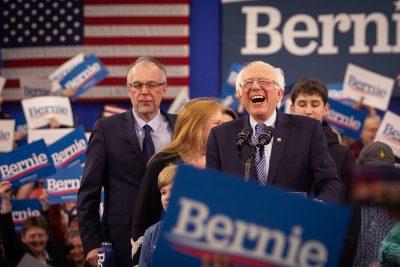
Sanders polled first place at 25.7 percent of votes, with former South Bend Mayor Pete Buttigieg following tightly behind at 24.4 percent. Both candidates rounded off the night with nine delegates from the Granite State.
Standing amid an applauding audience galvanized at the election results, Sanders’s victory speech at his Manchester, New Hampshire primary party centered on his momentum forward before transitioning into his stump speech.
“Let me say tonight that this victory here is the beginning of the end for Donald Trump,” Sanders said. “We’re going to Nevada, we’re going to South Carolina and we’re going to win those states as well.”
Buttigieg, 22 miles away in Nashua, New Hampshire, thanked his supporters to cheers after every sentence.
“I admired Sen. Sanders when I was a high school student,” Buttigieg said. “I respect him greatly to this day and I congratulate him on his strong showing tonight.”
Coming in third was Sen. Amy Klobuchar, who pulled in 19.8 percent of the vote. Sen. Elizabeth Warren, who had previously polled highly as a national frontrunner, came in more than 10 percent below Klobuchar in fourth place.
Former Vice President Joe Biden, another frontrunner on the national stage, ended the night in fifth place with 8.4 percent. Biden was the only candidate Tuesday that did not attend his own election night party.
Biden had announced the day of the primary he would leave the state for South Carolina, where he maintains a stronger voter base. The move came after he said in the last presidential primary debate he expected a subpar showing in New Hampshire — a prediction that held true.
As polls came to a close, so did the campaigns of entrepreneur Andrew Yang and Sen. Michael Bennett.
Yang, whose automation-focused presidential bid lasted two years, collected 2.8 percent of the vote Tuesday. He reminded supporters in a final speech that the reverberations of their work extend beyond the campaign itself.
“Tonight is not the outcome we fought so hard to achieve,” Yang said. “It has been really disappointing for many of us, but it shouldn’t be.”
Speaking before a small gathering of New Hampshire supporters Tuesday night, Bennett said he appreciates the chance they offered him.
“Tonight is not going to be our night, but let me say this to New Hampshire,” Bennett said. “You may see me once again.”
Bennett polled 0.3 percent in the state, 0.1 percent less than candidate and former Mass. Gov. Deval Patrick, who dropped out of the race Wednesday.
Tuesday’s New Hampshire ballot featured a total of 34 candidates, as residents in the state can pay $1,000 to appear as a write-in. One such candidate was Mark Stewart Greenstein, a self-described libertarian who ran under the Democratic ballot.
Stewart Greenstein said to The Daily Free Press he put himself on the ballot not because he believed he stood a chance at scoring delegates, but to inspire others to launch their own attempts at running for public office.
“It’s not going to happen, but let’s say somebody looks at me getting 2 percent of the vote somewhere and says ‘this little guy can get 2 percent and I’m better than him, I can run for Congress,’” Stewart Greenstein said. “That’s good. A lot of seats don’t go contested.”
Stewart Greenstein, who ultimately pulled in 0 percent of the vote, said he also believes the current Democratic candidates are too far left.
“We need somebody opposing that, and with it hopefully moving the Democrats back to the center,” Stewart Greenstein said. “I wish somebody with more heft than me was doing this.”
Matthew Sensabaugh contributed to the reporting of this article.

















































































































